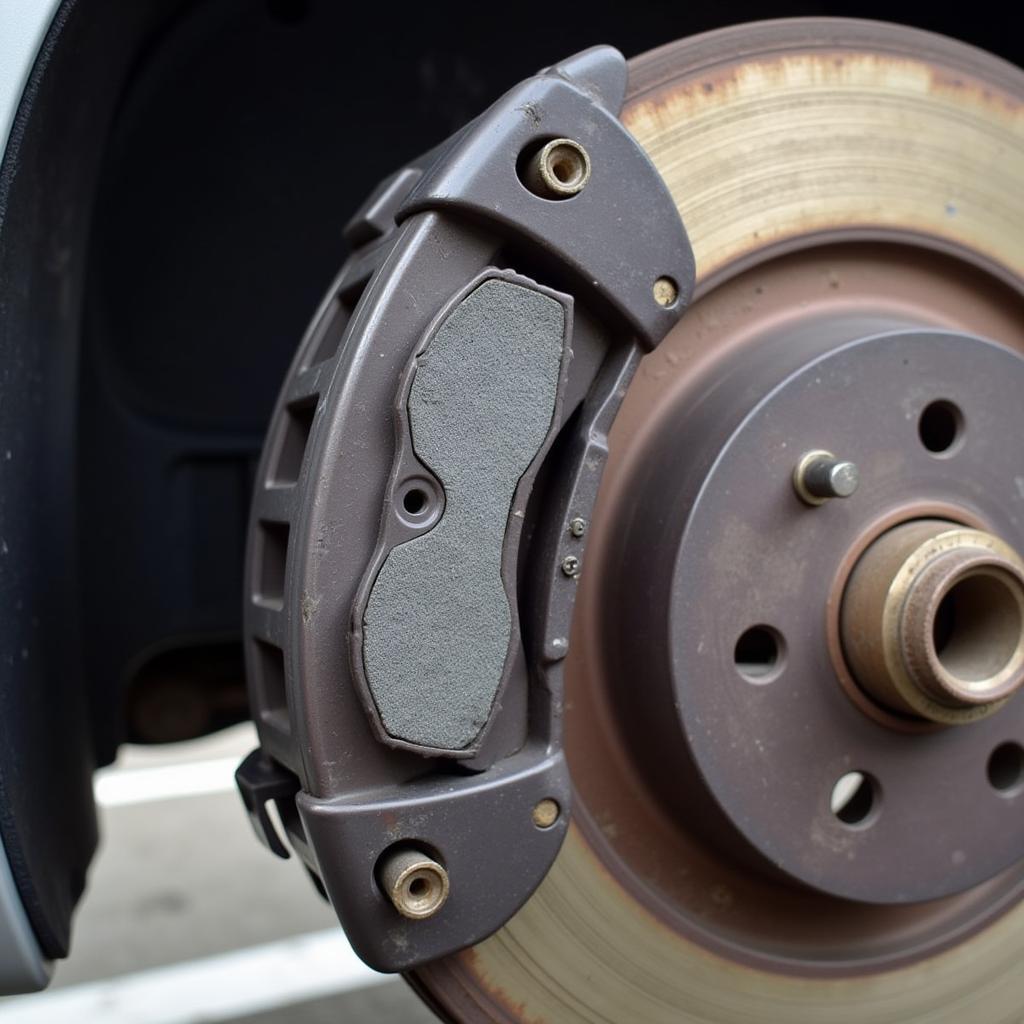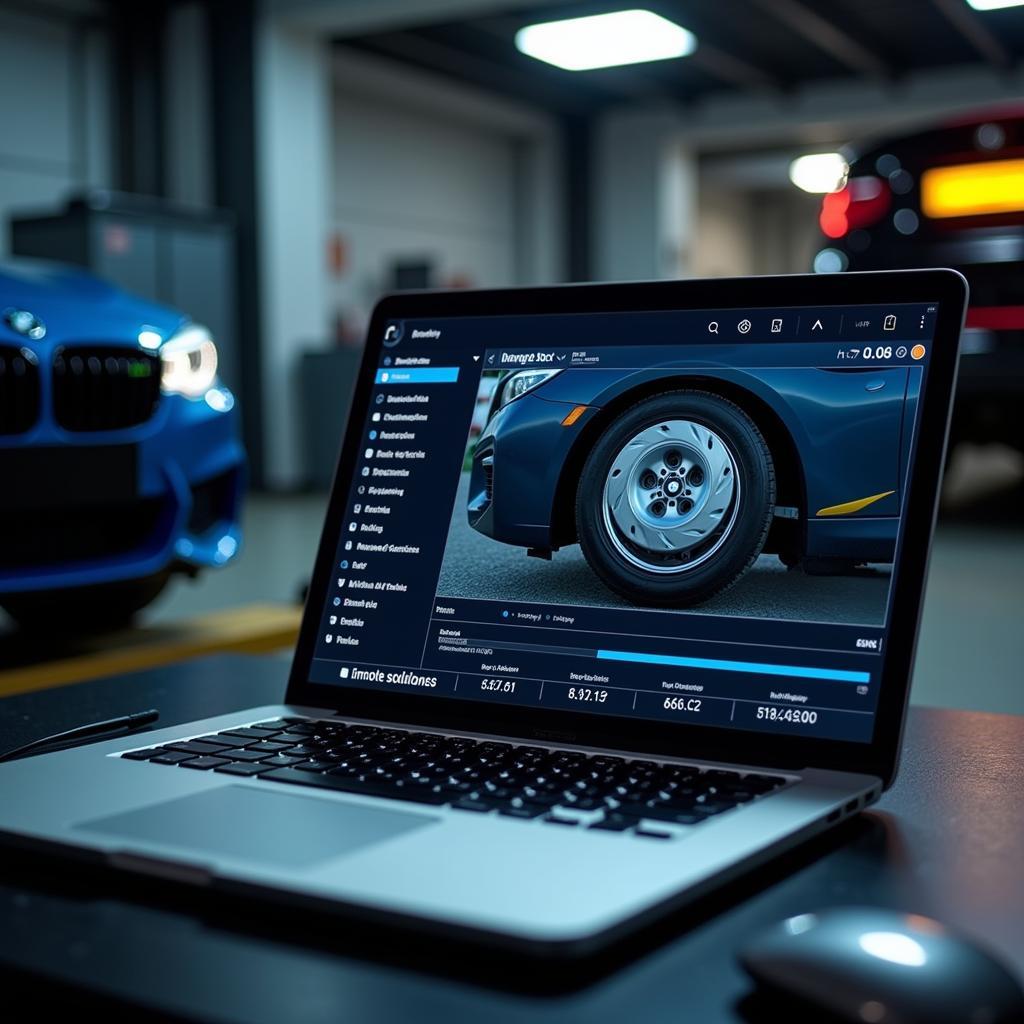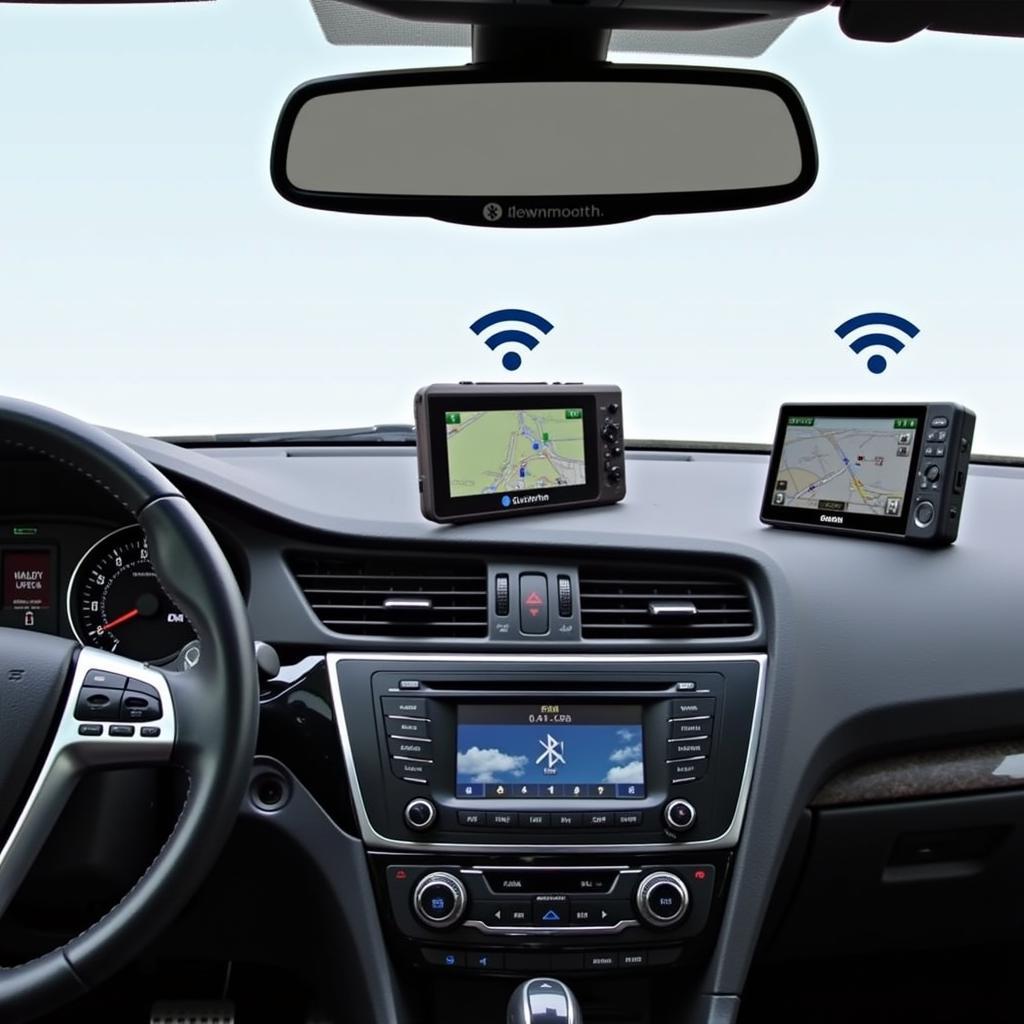The brake warning light on your 2007 BMW 328i is a crucial safety feature designed to alert you to potential braking system issues. Ignoring this light could lead to reduced braking performance and potentially dangerous driving situations. This comprehensive guide will delve into the common causes of a brake warning light on a 2007 BMW 328i and provide insights into possible solutions.
Understanding Your BMW’s Brake Warning Light
The brake warning light, typically a red circle with an exclamation mark or the word “BRAKE” in the center, can illuminate for several reasons. While it often signals a problem within the braking system, it can also indicate issues with other related systems.
Common Causes of a Brake Warning Light on a 2007 BMW 328i
1. Worn Brake Pads:
One of the most common reasons for the brake warning light to illuminate is worn brake pads. As you apply the brakes, the pads wear down over time. When the pad material reaches a certain minimum thickness, a sensor within the brake pad will trigger the warning light, indicating the need for replacement.
 Worn Brake Pads on a 2007 BMW 328i
Worn Brake Pads on a 2007 BMW 328i
2. Low Brake Fluid Level:
The hydraulic system in your BMW utilizes brake fluid to transmit force from the brake pedal to the brake calipers, engaging the brakes. A leak in the system or low brake fluid level can trigger the brake warning light.
3. Faulty Brake Light Switch:
The brake light switch is responsible for activating your brake lights when you press the pedal. A malfunctioning switch can disrupt the signal, leading to the brake warning light illuminating.
4. ABS System Malfunction:
Modern vehicles, including the 2007 BMW 328i, are equipped with Anti-lock Braking Systems (ABS). A malfunction within the ABS system, such as a faulty sensor or control module, can trigger the brake warning light.
5. Electrical Issues:
Like any electronically controlled system, the braking system in your BMW relies on proper electrical connections and signals. Corrosion, loose connections, or damaged wiring can disrupt these signals and illuminate the warning light.
Troubleshooting and Solutions
1. Check Brake Fluid Level:
The first step in addressing a brake warning light is to check the brake fluid level. Locate the brake fluid reservoir under the hood (refer to your owner’s manual for the exact location). If the fluid level is low, adding brake fluid to the recommended level may temporarily resolve the issue. However, it’s crucial to determine the cause of the low fluid level, as a leak within the braking system could be a serious safety concern.
2. Inspect Brake Pads:
Visually inspect your brake pads through the wheel spokes. If the pad material appears thin or you see a metal indicator protruding from the pad, it’s time for a brake pad replacement.
3. Seek Professional Diagnostics:
For issues beyond brake fluid and pad checks, it’s best to consult a qualified mechanic specializing in BMW vehicles. They can utilize diagnostic tools to pinpoint the exact cause of the warning light and recommend appropriate repairs.
“When it comes to safety-critical systems like brakes, it’s always better to err on the side of caution,” advises master BMW technician, Mark Johnson. “Ignoring a brake warning light could lead to more extensive damage and potentially compromise your safety on the road.”
Remote Diagnostics and Software Solutions
Advancements in automotive technology have led to the emergence of remote diagnostics and software solutions. For specific electronic issues related to the braking system, a qualified technician might be able to diagnose and resolve the problem remotely by accessing your vehicle’s computer system wirelessly. In some cases, software updates or recalibrations might be necessary to address the issue.
 Remote Diagnostics for BMW
Remote Diagnostics for BMW
Conclusion
A brake warning light on your 2007 BMW 328i should never be ignored. While some causes, such as worn brake pads, are relatively minor, others could indicate more serious problems within the braking system. By understanding the common causes and taking prompt action, you can ensure your safety and keep your BMW performing optimally. Remember, regular maintenance and proactive attention to warning signs are crucial for maintaining the safety and longevity of your vehicle.

